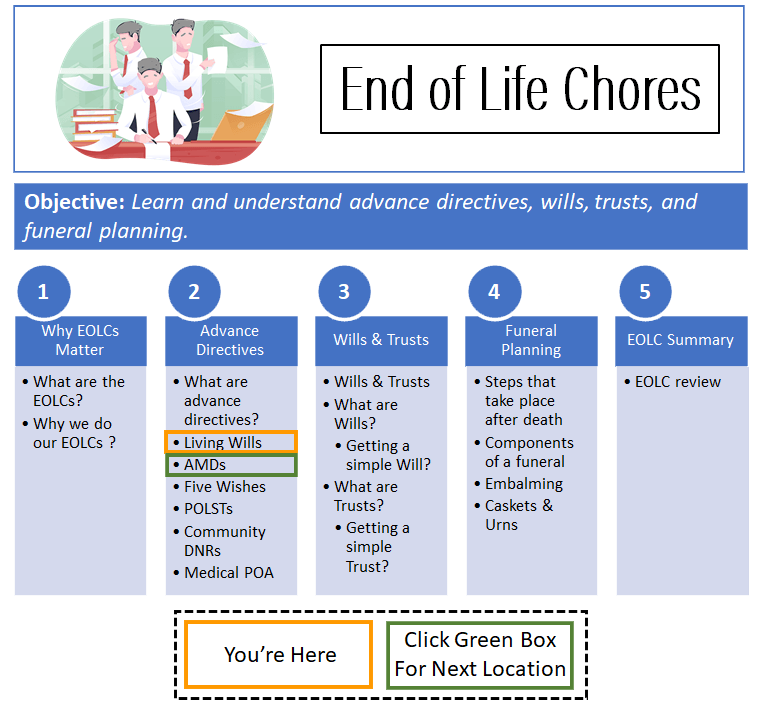Living Will
Click here to see what's on this page.
A Living Will is a legal document that generally spring into effect when the maker is (1) terminally ill and (2) unable to express their wishes. It addresses possible end-of-life care decisions. However, originally, these documents were narrowly tailored. They addressed those in irreversible comas and persistent vegetative states. Consequently, they required two physicians to certify that the patient is in a terminal condition or a persistent vegetative state.

Moreover, a traditional Living Will does not appoint an agent to make medical decisions on behalf of the maker.
Most states consider them perpetual; they don’t expire, although some want periodic renewal.
Other Names
Advance Directive
Purpose of Living Will
A Living Will is a legal document that generally springs into effect when the maker is (1) terminally ill and (2) unable to express their wishes. It also addresses possible end-of-life care decisions. When the maker was in an irreversible coma and persistent vegetative state. They also require two physicians to certify that the patient is in a terminal condition or a persistent vegetative state.
A traditional Living Will does not appoint an agent to make medical decisions on behalf of the maker.
Most states consider them perpetual, they don’t expire, although some want periodic renewal.
Limitations
Living Wills usually use vague language that is hard for physicians to interpret. Language like “an incurable and irreversible injury, disease, or illness”, “judged to be a terminal condition by my attending physician,” and “such procedures that will only prolong the dying process are to be withheld or withdrawn.”
Incurable and irreversible are often hard to define with absolute clarity. For example, if the spouse of the maker asks about a new or experimental treatment, how does the doctor answer? Moreover, what happens when doctors disagree.
In addition, the maker needs to be declared in a specific medical state before it goes into effect. You can be incapacitated, but not under the provisions of the Living Will. In these situations, who make the early decisions?
Conflicts With Other Documents
Living Wills are hard to interpret. A physician must declare the patient incapacitated. A physician needs to assess if the medical condition is irreversible and that medical interventions will not make the patient’s life better. However, emergency medical teams (first responders) don;lt make these decisions. In other words, when the first responders show up they don;t know about your living will and will treat you on the spot. Consequently, POLSTs and Community DNRs are used in addition to Living Wills. This ensures patients’ wishes are followed.
Who Recognizes Living Wills?
On the positive side, all states recognize Living Wills made in their State. However, they don’t necessarily recognize those made in other States.
Execution Requirements
Formally executing the document usually requires the signature of the maker and two non-family, non-healthcare witnesses. Also, they must be 18 years of age or older.
Revocability
These documents are revocable anytime.
Other Resources On Living Wills
See our section on advance directives here.
A great resource on here.
An example of an Illinois living will here.
